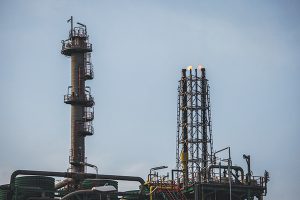Bloomberg
Oil rallied for a fourth day as a government report showed US stockpiles dropped last week, exacerbating global supply concerns with shipments from Libyan ports suspended.
West Texas Intermediate rose as much as 2.4% to trade near $114 a barrel. US crude stockpiles fell 2.76 million barrels last week, according to an Energy Information Administration (EIA) report on Wednesday. Inventories at Cushing, Oklahoma, the largest storage hub in the US, falls to the lowest since October 2014. Data for two weeks was released simultaneously after an outage last week.
Compounding market tightness, Libya’s state oil company suspended shipments from two key eastern ports. Output in Ecuador also has been lower due to ongoing protests. Those curbs to supply come as Shell Plc said spare energy production capacity is running very low, and the company’s chief executive officer painted a bleak picture of the global energy supply.
Global oil markets have tightened after a rebound in economic activity, with Russia’s invasion of Ukraine exacerbating the squeeze by upending trade flows.
Oil is heading for the first monthly decline since November after being hit by fears of a global economic slowdown, but prices still are about 50% higher this year. While fears of a global economic slowdown have weighed on futures, demand remains robust for now. US retail gasoline prices remain near record highs, causing pain for consumers. A recovery from Covid-19 and a shortage of refining capacity to make fuels continue to keep prices at record highs.
Time-spreads that help gauge market health are also flashing bullish signs, while a price marker for Middle Eastern
barrels has surged to a record.
While oil has been supported by renewed supply disruptions, subsidies are helping demand side. China said it will offer subsidies to refiners and won’t raise domestic prices if international crude surpasses $130 a barrel.
Still, the world’s largest crude importer doubled down on the nation’s Covid Zero strategy, raising concerns about the outlook for demand.
 The Gulf Time Newspaper One of the finest business newspapers in the UAE brought to you by our professional writers and editors.
The Gulf Time Newspaper One of the finest business newspapers in the UAE brought to you by our professional writers and editors.
